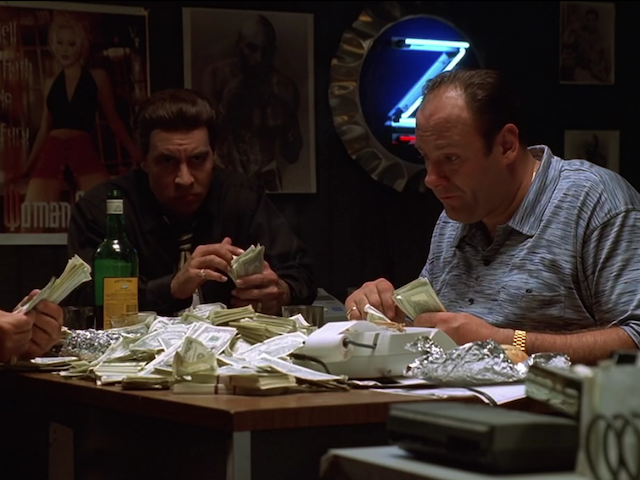Would You Miss The $100 Bill?
The Benjamin might go the way of the Dodo

It certainly makes a statement, a $100 bill. It’s the largest denomination in general use, although until about midway through the 20th century, you could theoretically run into a $500, $1000, $5000, or even $10,000 bill. Those higher-denomination notes originated in Southern states in the late 18th century, though that seems nutsy. $500 in 1780 must have been a huge amount of money to carry around, right?
Actually it’s not quite as simple as it seems: at that time, Colonial dollars depreciated until they were worth 1/40 of their face value, so a $500 note wasn’t worth what it should have been. Currency was a mess back then, consisting of American, British, other foreign, and later Confederate, specie, and historians have a hard time agreeing what one dollar, let alone five-hundred dollars, was “worth” in terms that we could understand.
A century later, in 1861, when such matters were more standardized, the Feds started distributing $500, $1000, and even $5000 notes, but they were more like bonds than cash: if you held onto them, you could redeem them after 1–3 years with interest. They also started issuing what we would recognize as a $100 bill, with its picture of Benjamin Franklin beaming at us like we just gave the correct answer to a question about how electricity works.
Now the finance world is abuzz with Larry Summers’ suggestion in the Washington Post that we should get rid of the $100 bill altogether. Who uses it, after all? Summers asks. Criminals.
illicit activities are facilitated when a million dollars weighs 2.2 pounds as with the 500 euro note rather than more than 50 pounds as would be the case if the $20 bill was the high denomination note. And he is equally correct in arguing that technology is obviating whatever need there may ever have been for high denomination notes in legal commerce.
What should happen next? I’d guess the idea of removing existing notes is a step too far. But a moratorium on printing new high denomination notes would make the world a better place.
He is literally arguing that bills in high denominations are too light. If terrorists and James Bond villains had to lug around briefcases filled with a million dollars in $20 bills instead of $100s, those briefcases would weigh five times as much, or they’d have to carry five times as many briefcases, which might attract someone’s attention.

I know he’s not trying to be funny, but it feels like Looney Tunes cartoon logic to me. I mean, we don’t carry around money in a sack with a dollar sign on it anymore. We live in a highly technological time, an age of Bitcoin and Venmo and Paypal; and we’re worrying about whether the $100 bill makes money too easy to move?
Here’s CNBC:
In essence, Sands [upon whose research Summers draws] argues that “bad guys” will have a harder time moving money if it takes up more physical space because it’s available only in smaller denominations. Others argue, however, that eliminating the $100 bill — or the 500 euro note, as is currently being considered — would simply induce criminals to find another mechanism for storing and transporting wealth.
No kidding. Also it’s simply not likely to happen. Americans like the $100 bill. Possibly we like it even more than the $20.
The $100 bill is incredibly popular, and it’s even closing in on the $1 bill: The Federal Reserve reports that there were 10.8 billion $100 notes in circulation at the end of last calendar year, compared to 11.4 billion $1s.
The $20 bill, meanwhile, had only about 8.6 billion notes in circulation at the end of 2015.
CNN Money points out, “Nearly 80% of the $1.4 trillion of U.S. currency in circulation is in $100 bills. Much of it is held outside the United States.”
I find that fascinating and would like to know why but CNN doesn’t go on to explain. Do overseas citizens, ex-pats, and rich foreigners alike enjoy hoarding cash reserves, like Tony and Carmela Soprano hid bricks of cash around their McMansion? Meanwhile some of the people complaining most loudly here are part of the gambling industry.
Hm. If the people who will be most affected by the loss of the $100 bill are either overseas, mobsters, or casino magnates, maybe I’m okay with this shift, Looney Tunes logic and all.
Support The Billfold
The Billfold continues to exist thanks to support from our readers. Help us continue to do our work by making a monthly pledge on Patreon or a one-time-only contribution through PayPal.
Comments